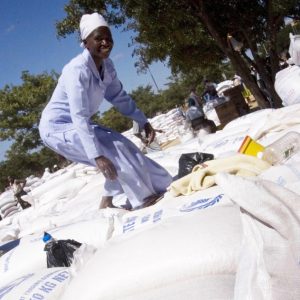The Stream, November 2: Long Recovery Ahead For South Africa Reservoirs
The Global Rundown
It could take half a decade for water levels to return to normal in South Africa’s drought-hit reservoirs. Floods in Egypt turned the Nile River brown and forced the closure of several water treatment facilities. Saltwater intrusion threatens to turn coastal wetlands in the southeastern United States into “ghost forests”. Ancient cisterns and improved cooperation between Israel and Palestine could alleviate water shortages in the West Bank. A new solar power plant in Mozambique offers an alternative to hydropower. West Virginia residents reached a settlement over a chemical spill that contaminated water supplies in the state capital nearly three years ago.
“We will end up drinking the mud. The color of the Nile is just like our dark days.” –Tarek Gamel, a resident of Egypt, remarking on recent floods that killed dozens of people and turned the Nile River brown with silt. The influx of sediment forced several water treatment plants to close. (Associated Press)
By The Numbers
5 years Amount of time it could take for reservoirs in South Africa to fully recover from the current drought that has cut supplies and forced cities to issue water restrictions. Reuters
40 megawatts Capacity of Mozambique’s first large-scale solar power plant, slated to begin construction next year. Solar and other renewable energy sources could reduce pressure on hydropower facilities in the country, which is suffering a severe drought. Reuters
$151 million Amount of a settlement between West Virginia residents and two companies involved in a chemical spill that contaminated the Elk River and shut off water supplies for 300,000 people in 2014. NPR
Science, Studies, And Reports
Researchers in the southern and eastern United States are finding evidence that saltwater intrusion from rising sea levels is killing trees in coastal wetlands, creating “ghost forests”. The changes are happening in places from northwestern Florida to Delaware Bay, and reflect a similar phenomenon occurring in Asia’s Mekong and Pearl River deltas. Yale Environment 360
On The Radar
Persistent water shortages continue to plague Palestinian communities in the West Bank, while permitting issues could lead to the demolition of some water supply systems. To expand access to clean water, officials at the United Nations are encouraging the refurbishment of ancient cisterns used by the Romans, as well as increased support from Israeli and Palestinian authorities. Reuters
A news correspondent for Circle of Blue based out of Hawaii. She writes The Stream, Circle of Blue’s daily digest of international water news trends. Her interests include food security, ecology and the Great Lakes.
Contact Codi Kozacek





